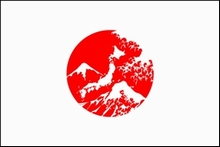The Three Attributes Demanded of a Competent Translator
October 31, 2014

Whether or not descriptions of products or services are correctly translated is a critical issue for a company seeking international sales channels. Since accurate and appropriate translation is indispensable to achieve effective localization, companies need to identify competent translators. Today, we look at the skills that competent translators possess.
1. High Language Skills
Translators are generally considered to have vast knowledge of a foreign language. But that is not the only skill demanded of them. Translators are demanded not just the skill to merely understand a foreign language, but also the skill to understand the deeper meaning of words and to phrase them in an appropriate fashion. This, in other words, is to understand the original text in terms of cultural and conceptual differences and to reconstruct them in the target language.
Demand Heightens for Translators! A Thorough Analysis on Why
October 28, 2014

USA Today reported that translators and interpreters ranked fourth among jobs in the U.S. that had grew most in demand during the past ten years. Employment for translators and interpreters increased by 171% from 2002 to 2012 at an increase of about 32,000 jobs. The U.S. Department of Labor estimates that jobs in translation and interpretation services would further increase by about 25,000 by 2020.
The heightened demand for translation services is seen not only in the U.S. but in Japan today as well. What are the reasons to this trend?
Why Translator Demand is Increasing in the U.S.
1. Ethnic Diversity
One of the factors to translator demand heightening in the U.S. is in the nation's growing ethnic diversity. States that border Mexico are particularly seeing the increase of the Spanish-speaking population, requiring schools and government institutions of many states and autonomies to seek translation services.
Citizens United to Raise English Proficiency! Sochi's Plan on Welcoming the Olympic Games
October 24, 2014

Sochi was the center of much global attention as the host city of the 2014 Winter Olympic Games. In welcoming the global event, citizens of the city united to better prepare for the Games.
A particularly key aspect among the numerous policies was to heighten English skills of the citizens. Today, we will look at what the Sochi government did to raise its people's English skills, and at the roles of interpreters and translators in the Olympics.
Measures Geared Toward Raising English Proficiency of Citizens
For the Sochi Olympics, as many as 25,000 volunteers were hired from nationwide Russia who received trainings to raise their English proficiency levels. The city held free English lessons for its citizens, displayed English terms and phrases on screens hung on buildings of the city, and made many other efforts to heighten basic English skills of its people.
Translation of e-books is No Longer a Dream!
October 22, 2014

In the past, you had to be a successful, best-selling writer to have your book translated. But today, anyone can publish his own work using electronic media, and some are paying to have their books translated into another language. What impact would this trend have on the translation industry?
Today, we look at the possibilities of e-book translation.
Are There Cost Benefits to Translating e-books?
With the spread of e-books, many writers are now able to release their works to the world without engaging the services of a publisher. At the same time, they can now have their works translated into a foreign language to acquire readers overseas.
What do you Need to Work as an Interpreter for the 2020 Tokyo Olympic Games?
October 20, 2014

Tokyo was selected to host the 2020 Olympic Games, which would likely have immeasurable effects on the economy. Included in these economic effects are, of course, more jobs for interpreters and translators. Today, we look back at the history of interpretation and see what makes a professional interpreter.
The Major Event that Established Interpretation as a Profession in Japan
Now an integral part of international society, interpretation is known to have gained worldwide recognition as a profession for the first time owing unexpectedly to the military tribunals after the Second World War. Back then, interpretation was a profession yet to be known to most Japanese people.
Five Key Points for Internationalizing Your Website
October 16, 2014

These days, Japanese businesses in various industries are looking for ways to make developments that will set the stage for their global expansion. This trend is likely to accelerate going forward, considering that Japan has seen a jump in the number of foreign visitors in 2013 and also won the bid to host the 2020 Olympics in Tokyo.
Simultaneously, more businesses are taking interest in the internationalization of their websites as an efficient advertising strategy. In this blog post, we will discuss five key points for making such websites.
1. Optimize Speed
Just because you can view your website without any problem via a broadband connection, that does not mean other people can access it with the same ease. Keep in mind that the speed of access to your website differs significantly depending on the user's Internet connection. Design your website so that it can be accessed and viewed the same way regardless of the user's connection speed.
Is a Multilingual Environment Conducive to Producing Hollywood Stars? Can Japan Make Progress on Multilingual Education?
October 10, 2014

Hollywood stars do not only come from the U.S. but from all around the world. For those non-American talents to achieve their success, there is no doubt that their language abilities have played a big role in addition to their acting skills and appearance.
What types of environments, then, are conducive to developing talented, multilingual individuals?
Four Common Mistakes Made by Businesses Entering International Markets
October 8, 2014

Riding on the wave of globalization, many Japanese companies are seriously considering the idea of entering markets outside Japan. Given how crowded their home market is, such moves to invest in international markets are perhaps an inevitable development. However, it may be the case for many companies that they have no clue of where to start, even if they actually decide to go global. In this blog post, we will take a look at four common mistakes made by companies entering international markets.
Mistake #1: Poor translation
One of the critical points for your business to achieve when venturing overseas is to effectively raise awareness of your company's products and services among target consumers of their new market. That is why it is not a good idea to ask someone who studied a bit of the target language in college to translate materials required for business in the new market. The important thing is to assign a professional translator who not only possesses excellent language skills but also has work experience and expertise relevant to your business.
Four Tips on Translating Technical Manuals
October 6, 2014

In today's world, businesses and individuals trade a vast range of products on a global scale. This creates a constant stream of demand for translation of technical manuals (user guides) that come with those products. Unless translated properly, these technical manuals have the risk of ending up as nothing but an indecipherable collection of jargon. In this blog post, we will give you four tips on translating technical manuals effectively.
1. Verify Translators' Abilities!
First, confirm that the members of the project team (e.g., translators, editors, and proofreaders) tasked with a technical manual translation have adequate experience and skills necessary to translate the assigned documents. In addition to translation experience, whether the members have actual work experience in the field in question and how knowledgeable they are in the target language and culture are also essential factors for producing good, accurate translations. Another important point is how familiar the members are with the latest terminology of the field in question.
What Do You Need to Produce High-Quality Translations?
October 3, 2014

Growth in globalization has been boosting demand for translation services. Japan is not an exception to this trend. With a very large number of translation agencies competing in it, the Japanese market sees materials of all fields translated in a wide range of language pairs everyday. And all these agencies operate with the same ultimate goal: provide high-quality translations.
In this blog post, we will take a close look at the steps translators need to take and the qualities they need to have to produce excellent translations.
1. First Essential Task: Preparation
The first part of preparation involves reading the source document until the end to comprehend its content. Then, the translator needs to research related materials, reading documents written about the topic in the target language, checking the terminology used, and collecting background information. By taking this step, the translator will be able to clarify any questions he or she might have had when first reading the source document and to gain a deeper understanding of its topic. In addition, this preparatory step will enable the translator to pick up keywords to focus on during translation.
Reexamine the Japanese Language through Translation
October 1, 2014

Globalization has created the need for translation in a very wide range of fields. Translation not only requires translators to know the source language but also to have the ability to accurately express in Japanese what is written in the original material. Translators will not be able to produce good translations unless they have a deep knowledge of the Japanese language. In this blog post, we will highlight some key points that will be beneficial for people to know when translating materials into Japanese.
Japanese: A Language Rich in Vocabulary
Did you know that the Japanese language requires its speakers to use significantly larger vocabulary in everyday communication compared with other languages? A basic vocabulary of five thousand words will be enough to get people through 93.5% of day-to-day conversations in English and 96.5% in French. In Japanese, the same size vocabulary will be enough to cover only 81.7% of the words used in commonplace conversations. If you want to have a 90%-coverage of everyday conversations in Japanese, you need to acquire a surprisingly larger vocabulary of 10 thousand basic words.
| October 2014 | November 2014 >> | |
Japanese Translation Agency Arc Communications
For urgent needs, call:
+81-3-5730-6133
